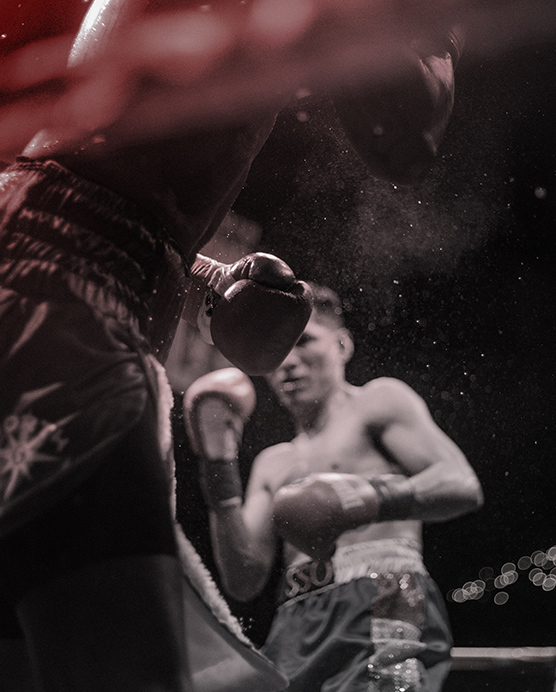The Council for Sports Ecosystem Promotion Conducts Investigation of Overseas Sports-Betting Websites: Scale of Illegal Market in Japan Increases to 6.5-Trillion Yen
The Council for Sports Ecosystem Promotion (Head Office: Shibuya-ku, Tokyo; Representative Director: Hironori Inagaki) (the “Council”), has investigated overseas sports-betting websites1 (said investigation, the “Investigation”) and hereby announces the details and results of the Investigation.
◆ Background and Outline of the Investigation
In recent years, in response to increasing access to overseas websites of online casinos that target residents of Japan, the number of people in Japan being suspected of gambling charges involving online casinos last year jumped to 279, approximately 2.6 times the number of incidents from the previous year, and the existence of overseas business operators that operate websites for online casino in Japanese for residents of Japan and affiliate marketing entities that lure them to such websites has gained recognition as a societal problem. In March 2025, the results of a fact-finding survey conducted by the National Police Agency2
were published, and it was found that the number of people who had used online casinos was estimated at approximately 3.37 million in Japan and that the total amount of annual bets was estimated at approximately 1.2-trillion yen. In addition, 40% of those who had used online casinos stated that they were unaware of the illegality of online casinos. These results in particular have attracted significant public attention. Successive cases of use of online casinos by athletes have also been discovered, and the relevant sports organizations have been overwhelmed dealing with such cases.
The online casinos that were the subject of the fact-finding survey by the National Police Agency included illegal sports-betting that deal with sports as the subject of betting (“Illegal Sports Betting”), and several online casinos offering Illegal Sports Betting along with non-sports-related gambling, such as baccarat and poker, were also found. Since its establishment, the Council has been investigating and analyzing Illegal Sports Betting, and, at present, as a result of a further independent investigation conducted by the Council through overseas data providers and other sources, the market created by Japanese residents’ use of overseas sports-betting websites that target residents of Japan (said market, the “Illegal Cross-Border Market in Japan”) in 2024 has been found to have grown significantly, to approximately 6.5-trillion yen.34
At the same time, it has been confirmed that with the rapid expansion of the sports-betting market in foreign countries, the sports-betting market for Japanese sports (the “Freeride Market”) has experienced the same growth around the world, including Japan.
The Council published an estimate of the scale of the Freeride Market in 2022,5
and it has since been confirmed that the scale of the Freeride Market in 2024 was approximately 4.9-trillion yen. Due to such circumstances, the Council decided to publish the results of its investigation along with a breakdown of the scale of the market by major sports. Regarding the Freeride Market, there have been “freeriding,” in which data and videos related to sports in Japan are unauthorizedly acquired and used6.
Furthermore, the Council also investigated the actual status of infringement of rights and affiliate advertising on some overseas sports-betting websites accessible from Japan. Details of the results of the Investigation are as provided below.
◆Results of the Investigation
1. Expansion of the Illegal Cross-Border Market in Japan and the Freeride Market
The Investigation confirmed that several overseas sports-betting websites accessible from Japan offer betting on Japanese baseball, soccer, basketball, tennis, golf, and other major professional sports games and events, as well as sports such as sumo wrestling and high-school baseball. Most of these websites offer services in Japanese.
As part of the Investigation, the Council contracted the largest overseas data providers and consulting firms to attempt to estimate the scale of the Illegal Cross-Border Market in Japan and the Freeride Market using a multitude methods.
It was found that the scale of the Illegal Cross-Border Market in Japan in 2024 was approximately 6.5-trillion yen for the total amount of annual bets and that, of this amount, the total amount of annual bets made by Japanese residents on Japanese sports was approximately one-trillion yen. Considering that in FY 2024, the total amount of annual bets placed on sports lotteries in Japan was 133.6-billion yen (with approximately 12.1-billion yen being with respect to predictive betting and approximately 121.5-billion yen being with respect to non-predictive betting), it can be said that the Illegal Cross-Border Market in Japan constitutes a significant market in Japan.
In addition, it was confirmed that the scale of the Freeride Market in 2024 accounted for approximately 4.9-trillion yen of the total amount of annual bets. According to the breakdown by major sports in Japan that were subject to betting in the Freeride Market (see Attachment), it was found that approximately 2.9-trillion yen—more than half of the 4.9-trillion yen constituting the total amount of annual bets—was spent on soccer matches in Japan. According to the breakdown of market share by country and by major sports (see Attachment), residents of Asian countries—mainly China—and residents of the United States are betting on sports in Japan.
Further details regarding the scale of the Illegal Cross-Border Market in Japan and the Freeride Market follows, and the Attachment contains a breakdown of the market scale by sport.

2. Potential Infringement of Rights of Sports Organizations and Athletes by Sports-Betting Websites and Advertisements
Bets are placed using overseas sports-betting websites in both the Illegal Cross-Border Market in Japan and the Freeride Market. The Investigation revealed that some overseas sports-betting websites accessible from Japan provide services in a manner that may infringe upon copyrights, likeness rights, publicity rights, and other rights.
Specifically, the Investigation has discovered websites that provide the following services and information:
(i) The betting page of a sports-betting website that live-streams videos of a Japanese professional-sports event at the top of the screen while providing services to enable betting on the event at the bottom of the screen; although, it was possible to watch the live-stream without placing bets.
(ii) A sports-betting website using Japanese team logos on its top page for Japanese professional-sports matches.
(iii) Advertisements for sports-betting websites, including advertisements on social media, using images (specifically, likeness) of athletes, with respect to various sports, wearing their team uniforms.
The overseas sports-betting operators providing services in the manner described above are not only providing illegal services to residents of Japan but also may be engaged in material infringement of copyrights, likeness rights, publicity rights, and other rights. If of athletes’ likeness is used for advertising and promotion of an overseas sports-betting website, users could mistakenly believe that such athletes are actively endorsing these services—illegal for residents of Japan—which are provided by overseas sports-betting operators.
3. Increase in Affiliate Advertising
The Investigation also confirmed that, as in the case of online casinos, there are a large number of affiliate marketing entities in the Illegal Cross-Border Market in Japan that use blogs, social media, and the like to advertise and promote overseas sports-betting websites that target Japanese residents and are compensated in accordance with the results that their advertisements achieve.
These affiliate marketing entities often operate pursuant to a scheme in which they are paid by overseas sports-betting operators or brokers on a contingent basis the equivalent of 20% to 30% of the total monthly losses of the users that they introduce to these overseas sports-betting operators or brokers (see the chart below). Assuming that the scale of the Illegal Cross-Border Market in Japan is approximately 6.5-trillion yen, the implication is that under such a scheme, these affiliate marketing entities could be receiving compensation on a scale of 100-billion yen per year.
The high profitability of the affiliate advertising scheme described above suggests that an ongoing increase in affiliate advertisements may be unstoppable. Recently, there have been cases in which residents of Japan who use affiliate advertising to lure users to online casinos have been arrested on suspicion of aiding and abetting habitual gambling. Similarly, charges could be made in connection with affiliate advertising for sports-betting websites.

◆ Policy Going Forward
Until now, the Council has disseminated educational information regarding the illegality and dangers of these activities in order to protect athletes against any and all risks, particularly manipulation and corruption including match-fixing, as the Illegal Cross-Border Market in Japan and the Freeride Market grow.
As mentioned in 1. supra, the Investigation confirmed that the scale of the Illegal Cross-Border Market in Japan amounts to approximately 6.5-trillion yen of the total amount of annual bets placed. The Investigation also confirms that the scale of the Freeride Market approaches 4.9-trillion yen of the total amount of annual bets placed. As discussed in 2. supra, the Investigation also uncovered several overseas sports-betting websites that provide their services in a manner that may infringe upon copyrights, likeness rights, publicity rights, and other rights.
Many foreign countries have established an information-aggregation-and-sharing organization called a “National Platform,” based on the Macolin Convention.7
With the Council of Europe as the base of operations, international cooperation is promoted through the Network of National Platforms (the Group of Copenhagen). As a result, advanced measures and initiatives are being taken to prevent manipulation and corruption, including measures against Illegal Sports Betting, based on the information-sharing system in each country. However, Japan, at present, has yet to establish and implement such system and measures.
In response to this situation, the Council has formed a study group centered on major sports-related organizations and legal experts, together with the Council of Europe and other relevant overseas organizations and overseas sports-related organizations, to discuss measures against Illegal Sports Betting, including the Illegal Cross-Border Market in Japan problem, and measures against the Freeride Market. The Council will continue to disseminate information and provide information to the relevant ministries and agencies, while investigating Illegal Sports Betting and the Freeride Market and considering measures.
◆Website of the Council https://council-sep.org/
1 The Investigation was limited to overseas sports-betting websites operated by sports-betting operators in jurisdictions in which they are permitted, through licenses or by other legal means, to engage in business overseas.
2 “National Police Agency Commissioned Research Fiscal Year 2024, Report on the Fact-finding Survey to Understand the Actual Status of Online Casino Use” published by Seed Planning, Inc. (January 2025).
3 The amount differs from the results of the fact-finding survey conducted by the National Police Agency, but the reason is the difference in survey method between that used by the Council and that in which estimates were calculated based on the results of a questionnaire survey in the results of that survey. Therefore, the results of the Investigation conducted by the Council do not negate the results of the survey conducted by the National Police Agency.
4 As mentioned above, the subject of the Investigation was limited to websites operated by operators authorized to conduct business overseas, and while it is assumed that there are many cases of the use of websites operated by unlicensed operators in any country, such cases were not covered. Therefore, there is a possibility that the illegal market has grown to an even larger size than that of the Illegal Cross-Border Market in Japan, which is approximately 6.5-trillion yen.
5 “Sports Digital Transformation Fact Book” published by the Council for Sports Ecosystem Promotion (April 2022) (https://council-sep.org/resource/pdf/documents/share/スポーツDXファクトブック.pdf)
6 In specific cases, third parties who have not obtained consent from the rights holder enter the match venue as spectators and immediately transmit and communicate match information to outside parties using headsets and video recording.
7 A convention that provided the world’s first legal framework for promoting a system of international cooperation to deal with the problem of manipulation in sports competitions.

















